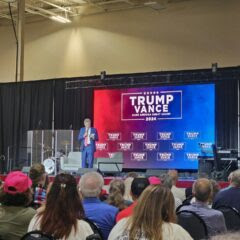Wennmann is the director for strategic partnerships at Geneva’s Graduate Institute, where he has the Nagulendran chair of peace mediation. He has spent the last 25 years in Geneva since he came to the Institute for his master’s degree and PhD, after completing a bachelor’s degree at Sussex University in England. "Geneva has a long history of peace, partly because it is so inherently connected to all the actors who are responsible for war, but also all the actors who are responsible for peace," says Wennmann, speaking of the city in the west of Switzerland, that hosts top diplomats from nations big and small. Often referred to as the "City of Peace," Geneva seems the most appropriate place to base for research and practice on peace mediation. It hosts the European headquarters of the United Nations and houses prominent international organizations such as the World Council of Churches (WCC), whose member churches are often peace mediators. Peace in Geneva The Geneva region has been the centre of talks to forge peace in various conflict zones, including recently on Syria and Sudan. He elaborates on why the city and its surroundings have good ingredients for allowing various parties to engage in talks that can be the precursor to peace talks and ultimately resolve a conflict. "I think what is very important for churches and networks of churches, is the ability to be as close as possible to the individuals on the ground, and to listen to what makes conflict dynamics, and to project this understanding into a global capital like Geneva," Wennmann explains in an interview. "In addition, because organizations such as the World Council of Churches are so close to the local conflict dynamics, to raise red flags when they hear that relations are really deteriorating," he says. "This applies particularly," he says, "if perceptions are deteriorating, when it comes to the articulation of enmities and there is one group that ratchets up the articulation of a narrative against another group." When conflicting groups increase their level of hostility, "these are usually red flags in the escalation of conflict. And this is where the World Council of Churches, I think, has a very important role to play." Wennmann explains that to make peace, you need to have excellent relationships with those actors who are making war. "That means military establishments from states; semi-official military establishments from states. That means so-called rebel groups or terrorist organizations, that means using humanitarian language involving weapons holders, or non-state armed groups," says Wennmann. "That is a critical reality in Geneva – a city that remains one of the only places worldwide where you can have second-degree relationship with any armed actors anywhere in the world.” So, is it easier to negotiate for peace in a city like Geneva than it might be in another city? Easier in Geneva Wennmann believes it is easier in Geneva to advance peace than elsewhere. "There is this long tradition of being able to hold discrete meetings. On the one hand, this goes back to the knowhow of the good offices of the Swiss government and the knowhow of Geneva-based private diplomacy organizations." Such a meeting entails essential logistical factors, such as supporting "difficult individuals" in coming to Geneva, guaranteeing their freedom and safety, and ensuring their return. That cannot be done in many places, but it can be done in Geneva under the circumstances allowed by Swiss authorities and their capability to ensure that talks go ahead. "So, there is something about the Swiss-ness, and there is something about the experience of holding talks in a trusted space,” says Wennmann. “In the current political context, this trust in Geneva’s safe space is a valuable global asset and Swiss contribution to global peace and security; yet this trust is earned, year after year. It has to be maintained, and this should be a deliberate effort by the Swiss authorities and all those who care about Geneva’s special role as a peace hub." The professor says the "natural beauty" around Geneva also plays a part. "You can bring delegations together in an inspiring location that is beautiful and surrounded by nature, which you have around Geneva. It can be in the mountains close to Geneva, where you can transpose groups into a different environment that makes them more amenable to thinking about other options out of conflict rather than war or conflict. This is different from just another hotel room in the desert." The professor’s work is crucial in 2024; as he notes, there is a lot of war and conflict. "It's an era that is frequently said to have the most conflicts since the Second World War taking place. They are serious conflicts that have systemic implications, if you look at Ukraine, if you look at Gaza, but also at Sudan and the conflict tensions around the South China Sea," says Wennmann. He adds, "The fact that you do not see many official processes doesn't mean nothing is happening. There is a lot of diplomacy taking place, on the one hand, because diplomats have rediscovered their role in peace diplomacy, and on the other hand, because many other actors are engaging in so-called ‘private diplomacy.’ ” Wennmann says this is advanced by an array of other actors from specialized organizations, corporate diplomats, or other intermediates, such as churches, in places where official diplomacy has no reach. Learn more about the Geneva Graduate Institute | 


















